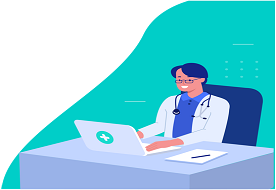 Upgrading or switching to a new electronic health record (EHR) system is a huge step in improving your clinic or private practice's productivity, care quality, and financial wellbeing. There are many challenges associated with making such a big change, but switching to an advanced system, such as NextGen Healthcare software, comes with benefits that far outweigh the costs.
Upgrading or switching to a new electronic health record (EHR) system is a huge step in improving your clinic or private practice's productivity, care quality, and financial wellbeing. There are many challenges associated with making such a big change, but switching to an advanced system, such as NextGen Healthcare software, comes with benefits that far outweigh the costs.
If you're a healthcare administrator or business owner contemplating switching to a new EHR system, you should first understand the roadblocks you'll likely face during the transition. By identifying and planning for these challenges ahead of time, you can make the switch as smooth as possible.
Overwhelming Data Transfers
Migrating your practice's patient records is critical to providing uninterrupted care. Unfortunately, if your current records are disorganized or you lack a proper plan for converting documents, then the process can be quite time-consuming.
Having an experienced IT professional assisting you can help expedite the process while preventing errors and omissions that leave your staff scrambling to find pertinent records. A healthcare IT professional can help you formulate a plan for keeping records up to date during the transition and establish protocols for future use.
Keep in mind that if your records have specialized data fields, it can be an expensive and slow process transferring that data, even with professional assistance. To simplify the process, make sure both your current and new EHR systems generate continuity of care documents.
Training and Workflow Interruption
Rolling out new EHR software requires the coordination of multiple moving parts within the organization; for the system to do its job, all departments need to be on board, and all employees need to be trained in the new software.
Staff EHR training needs to be thorough but can't take up so much time that it halts your clinic or practice's workflow entirely. To ensure your staff receives the best education possible and knows how to leverage all the functions of your new system, you may want to consider working with an EHR consulting firm with experienced staff trainers.
Lack Of Buy-in From Staff
Making the transition smooth and successful does not only rely on technical prowess; there is also a human factor. If your staff is reluctant to adopt the new system, then no amount of training or preparation will improve the process.
To ensure your staff is happy with the new software, make sure they are involved from the very beginning. Your employees' concerns and needs should be heard and taken into account when deciding which new software to implement. Once you've made that decision, a serious effort needs to be made to engage them during training. Offering incentives will help to offset the reluctance they may have for adopting the new system.
Needing Technical Support
Having an experienced IT professional is a great resource to have at your disposal, but it isn't the only technical support you will need. Choosing a software provider with a dedicated help desk that can walk you through small issues as they arise is important too.
Being able to reach out to them throughout the workday will be more timely and affordable than using your IT manager. The software company's help desk will also have better insights into the specific issues you might have, so they can give more proactive instructions to remedy them.
Integrating Other Software and Systems
Another factor you should account for before deciding on a software provider is the system's potential for interoperability. The software's ability to share information with other healthcare providers, or even with the patients themselves, can greatly improve the quality of care you offer.
Reallocating Resources and Employee Responsibilities
With new software automating some processes and making others more efficient, you'll likely need to adjust how you use your resources and which responsibilities different employees have. During this phase, staff shouldn't feel like their jobs are threatened, so do what you can to reassure them of their job security if you don't plan on making cuts.
Optimizing Software Operability
If you're feeling overwhelmed by all of the different obstacles you might face, there is always the option to consult an agency specializing in this field. There are many service providers available who help healthcare facilities implement and optimize their EHR software use. Remember, asking for help is a strength, not a weakness, when it comes to pivotal processes like switching to a new EHR provider.